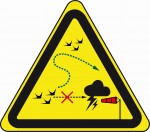Save the World II – How Climate Change is Affecting Migratory Birds

Save the World Festival 2015 © Aydin Bahramlouian
Bonn, 21 September 2015 – the Save the World festival was staged for the second time in Bonn from 18 to 20 September bringing together well-known artists, UN experts and a variety of NGOs with the aim of highlighting in an entertaining yet still informative manner the consequences of climate change. Save the World was organized by Theater Bonn in collaboration with the Beethoven Festival.
One of the performances was co-organized by UNEP/CMS illustrating the dangers that climate change poses to migratory animals through its effect on extreme weather events, temperatures, food supplies and many other factors. The highly varied programme including plays, concerts, lectures and a market contained elements appealing to young and old.
UNEP/CMS teamed up with choreographer Jochen Roller to build a competitive parcours for the audience to feel first-hand what threats and struggles birds experience migrating from southern Africa to Europe and back again - a journey equivalent to flying half way across the world each year. The “Out of sync - the early bird misses the worm” parcours illustrated how ecological interactions can become "out of sync" due to climate change with disastrous consequences for our biodiversity. Many trans-Saharan birds for example are currently in decline because they miss the optimal feeding period at their destinations and thus cannot gain sufficient resources to continue the journey and reproduce.
The parcours further allowed the audience to experience the impact of power lines, wind farms and nets set up by poachers along the North-African coast. “Migration was already arduous enough with birds having to cross mountains, oceans and deserts. Humans have made the journey much harder and climate change is happening so fast that many species simply cannot adapt”, explained Aline Kühl-Stenzel, Terrestrial Species Coordinator at the UNEP/CMS Secretariat, “People here in Germany do not see their lives being affecting by climate change yet – but we hope that through our parcours, they now have a better impression of what is happening and what lies ahead, not least for their own lives and those of their children, unless we dramatically cut emissions today."
Last updated on 14 October 2015





